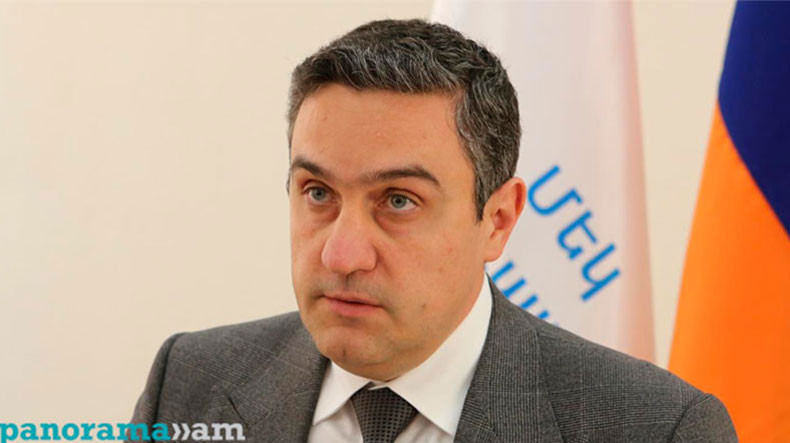
Opposition figure: Foreign Ministry 'accuses' Pashinyan of committing crime against Armenia's territorial integrity
The Armenian Foreign Ministry “accuses” Prime Minister Nikol Pashinyan of committing a crime against Armenia’s territorial integrity, the inviolability of the state borders and the external security, leader of the opposition One Armenia party Artur Ghazinyan said on Wednesday.
Citing the ministry’s official position issued in response to the ombudsman’s inquiry seeking clarifications over border demarcation and delimitation processes in Syunik Province, the opposition figure described it as a "confirmation of the treason committed by the prime minister.”
“In response to the ombudsman's inquiry, the Armenian Foreign Ministry presented the entire legal procedures of the delimitation and demarcation of state borders, which in fact proves the criminal-arbitrary nature of Nikol Pashinyan's actions and is yet another proof of the treason,” he wrote, calling on the law enforcement authorities' attention to the statement.
The ministry's statement is below.
“Delimitation and demarcation of state borders are successive bilateral international processes that require the existence of a joint commission and within the framework of which professional discussions and negotiations are held. A prerequisite for the above-mentioned processes is the existence of normal bilateral relations, including diplomatic relations, between the neighboring states.
In international practice, a bilateral intergovernmental commission (chaired by representatives of the foreign ministries of the countries) is formed to carry out delimitation and demarcation processes between neighboring countries, consisting of representatives of state stakeholders (foreign policy, defense, security), experts (particularly in the field of geodesy cartography).
The first stage of the work of such commissions, as a rule, ends with a separate bilateral agreement on the legal basis of the demarcation, and later, after the demarcation, on the joint implementation of the demarcation process.
Upon successful completion of the bilateral process, the commission concludes an agreement on the border between the two countries, which stipulates that all border issues have been resolved.
Prior to the commencement of the above-mentioned processes, "their successful completion, the deployment of armed forces or border troops to conduct combat duty along the state border is a purely defensive" security measure, in areas actually under the control of the parties, negotiated directly or indirectly between representatives of the armed forces."
Therefore, the implementation of the current measures is not related to status issues, can not be interpreted as a final agreement on demarcation, or mechanical approval of existing administrative boundaries."
Related news
Newsfeed
Videos






























